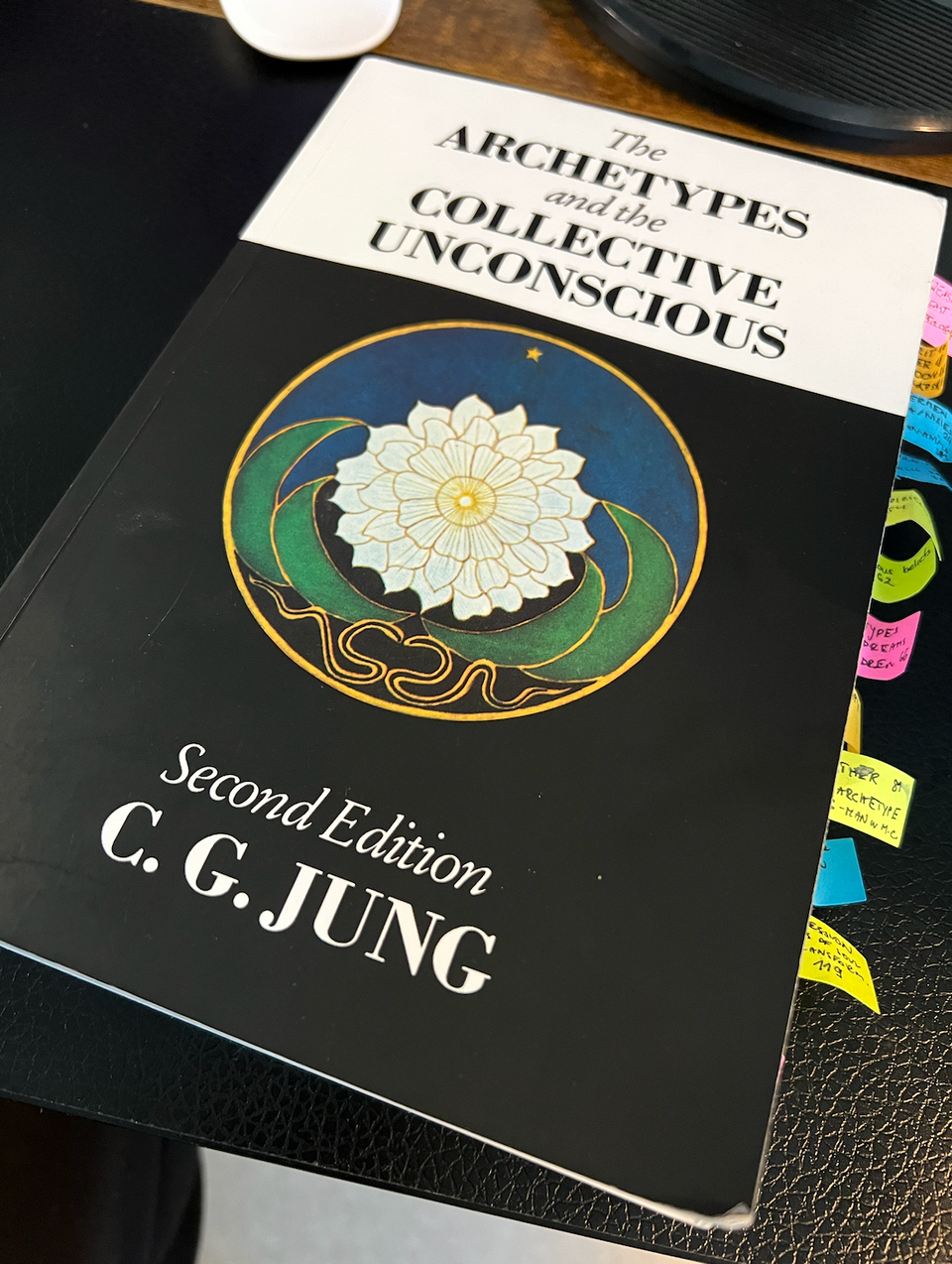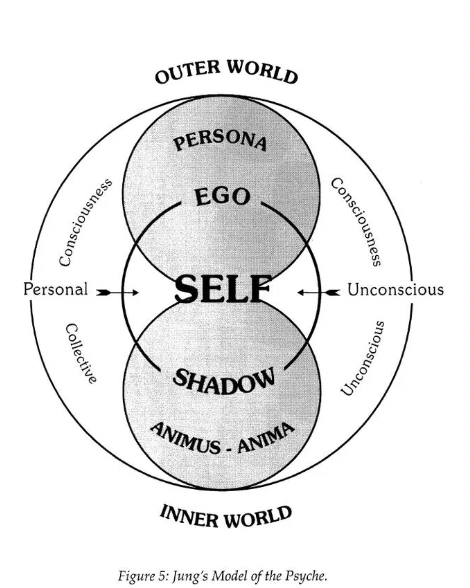Carl Jung's Archetypes and the Collective Unconscious

I've decided to try to start a series on the book I've recently read. Oh boy, has it changed the way I see the world. The posts might or might not relate to each other, but I will try to keep them coherent. (Trying to keep the workload as small as possible so that I manage consistency!)
Let's see how it goes.
Read The "Too Long Didn't Read Version":
Personal unconscious: repressed emotions and memories / Collective unconscious: universal, archetypal images and symbols, which, quote, "have existed since the remotest times."
Carl's perception of our situation was that man has ever since projected the contents of his unconscious onto the natural world.
The contents of the collective unconscious are called Archetypes.
Modern man has learned to avoid and repress unconscious content since it is immeasurable and unquantifiable, which doesn't fit with the scientific view of his world. Furthermore, we don't want to deal with the shit under our carpets. The pain and agony that we repressed.

What Hans learned:
The world is twice as big as the one I lived in. I was primarily focused on the outer world and disregarded all my projections and mysterious experiences. Today they seem more real than real to me.
It is super exciting because behind everything might be meaning, and this time, it is not irrational or nonsense, but it is part of my ancestry and who I am.
The Full Version
Usurp 1: The primitive man and projections.
Projection
Carl's perception of our situation was that man has ever since projected the contents of his unconscious onto the natural world. As an example, he gives a quote that says, "The stars of thine own fate lie in thy breast," as an appeal to astrologists, who for ages tried to read their fates in the stars and horoscopes. To Jung, man is simply using the occurrence of the stars in his visual field as an object to project his fate upon.
-> random thought - (This would also explain the modern need to travel all over the world with the hopes it will somehow change you or reveal your fate to you. However, it is rather the internal journey that we so long to make.)
The projection, most likely in the form of some imagery, ought to come from the unconscious contents of man. However, not only the personal unconscious, which consists of repressed memories and feelings of the individual's lifetime, but rather the collective unconscious, comprised of universal, archetypal images and symbols, which, quote, "have existed since the remotest times."
Fun Example
Here I have to think of a bit in Joe Rogan's stand-up, where he spoke of his cat, which has never, ever left its house. By chance, the cat saw a squirrel through the window one day. Despite the fact that the cat had never been outside, it had expressed its need to, as Joe said, "bite through that squirrel's neck," subsequently he asked, "How did it know?" followed by another great example, the same but with a virgin man and a woman. Hilarious. Go and watch it. (Joe Rogan - Triggered)
The contents of the collective unconscious are archetypes: Imagery (mostly) collected by ancestors over millions of years. But here the key word: "collective." We all share that set of images/symbols. According to Jung, that's what ultimately gave birth to myths, folklore, and religion.
Evolutionary perspective
When you see a snake, you have higher odds of survival if you automatically jump away from it rather than having to see it, categorize it, calculate the most appropriate decision, and then jump away.
"Reason" and Resistance
Although, as apparent or self-evident as this may seem to you, it still feels like that's something we disregard constantly. We've adapted a rather materialistic, scientific, "realistic" view of the world. Things that cannot be quantified and measured are seen as "nonsense."
To which Jung says: " When he (modern man) starts thinking about them (archetypes), he does so with the help of what he calls "reason" – which in point of fact is nothing more than the sum-total of all his prejudices and myopic views.
When a projection from the collective unconscious manifests, it is filtered through your personal unconscious, meaning it carries a whiff of your own shit.
When we sense it, we automatically assume a stance of repression. We don't want to dig deep. We don't want to deal with the shit under our carpets. We don't want to face the unconscious, repressed pains and fears we have in us.
Here is how these first few pages in the book changed my view of the world:

"Myths refer to something psychic," says Jung in the book. I was raised with the words, "Fairies, witches and dragons don't exist. Magic does not exist. Anyone who believes in fairytales is childish, naive, maybe even mentally ill."
Now I realize that my view of the world was entirely focused on the outer world. Unaware that the outer world was dunked in unconsciousness juices. Unaware that there were powers inside of me that impacted and directed my whole life. The size of my world has literally doubled, and it is super exciting, because behind everything might be meaning, and this time, it is not irrational or nonsense, but it is part of my ancestry and who I am.

Member discussion